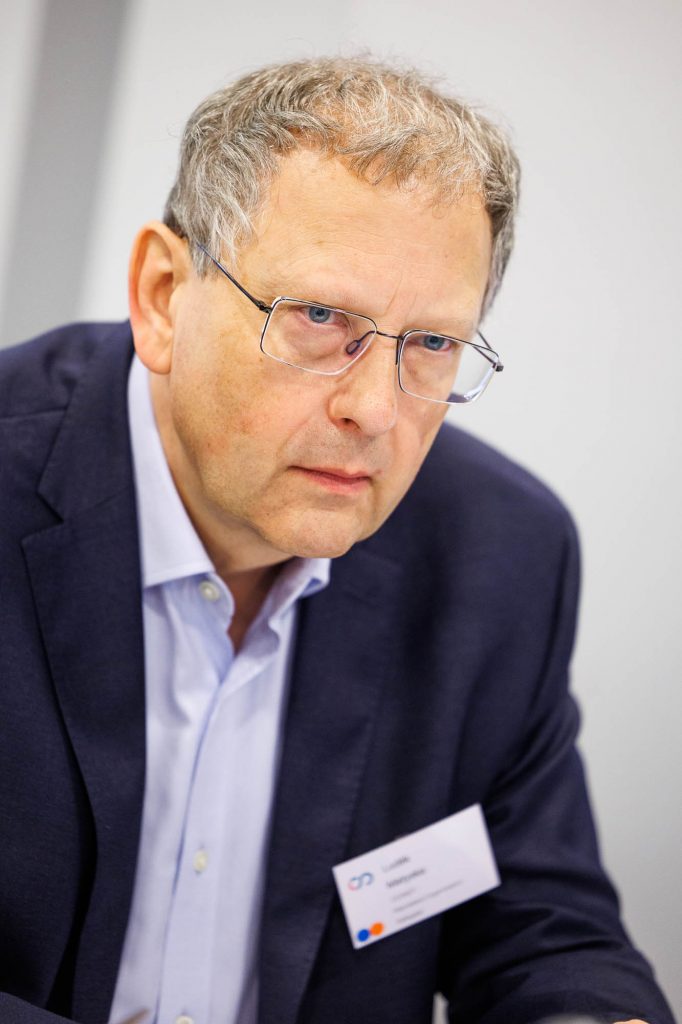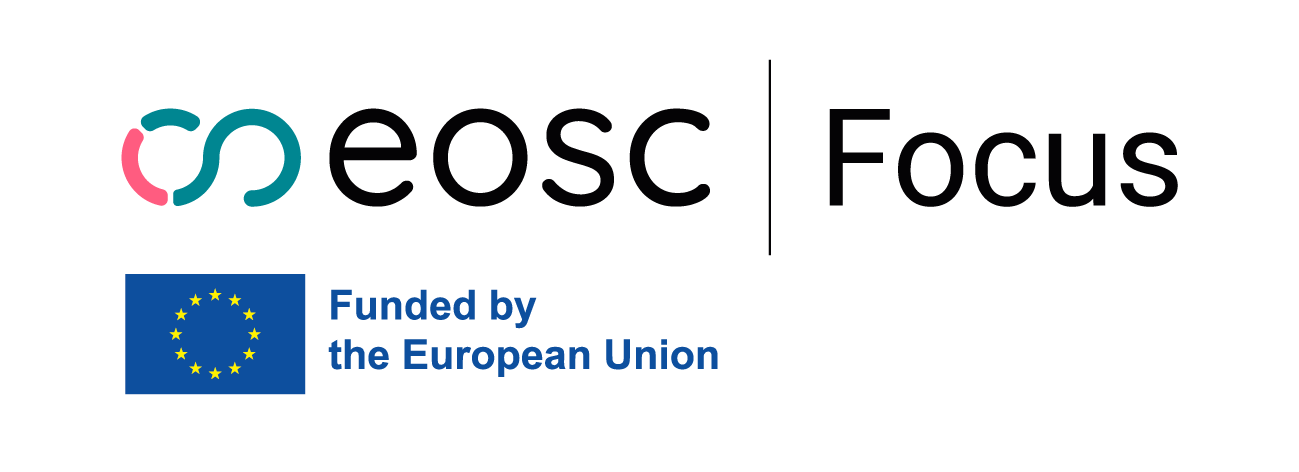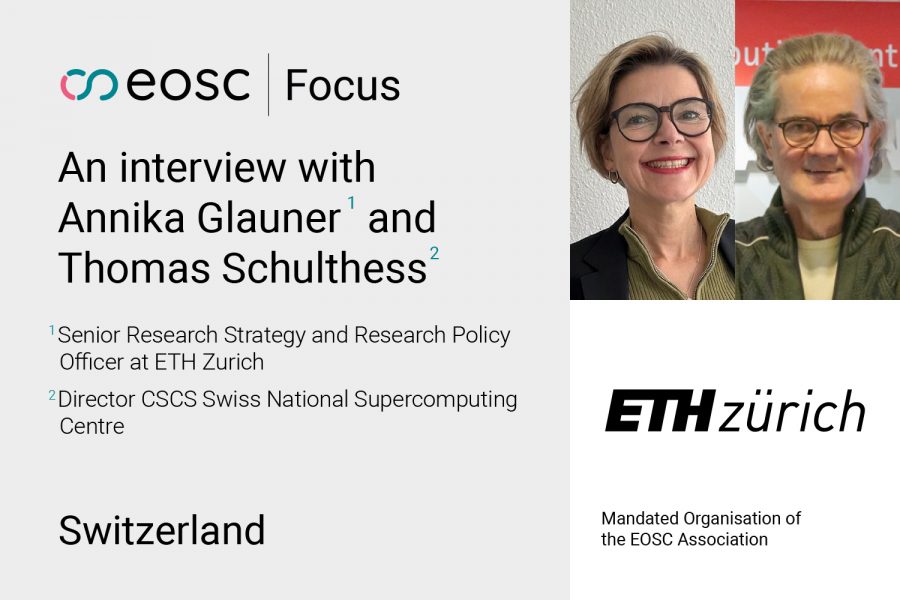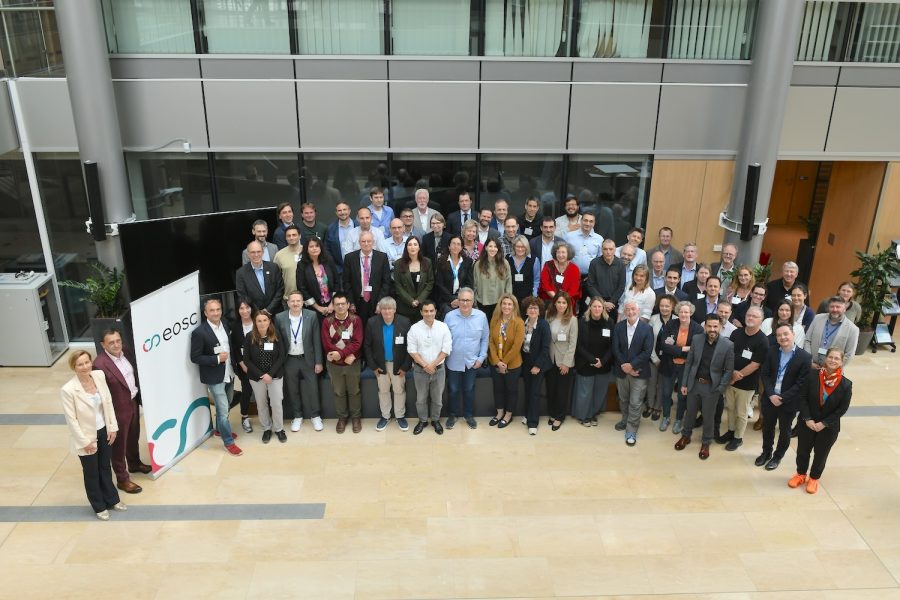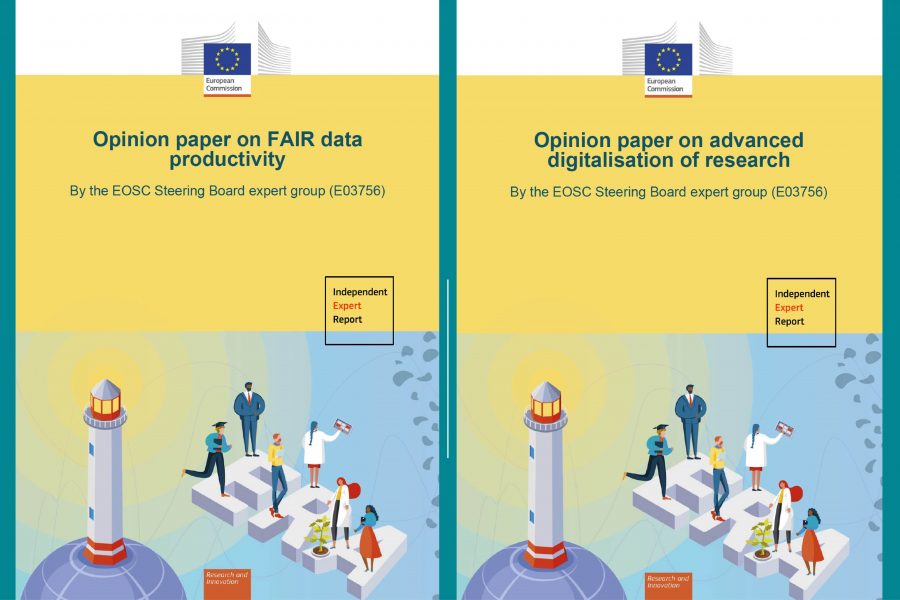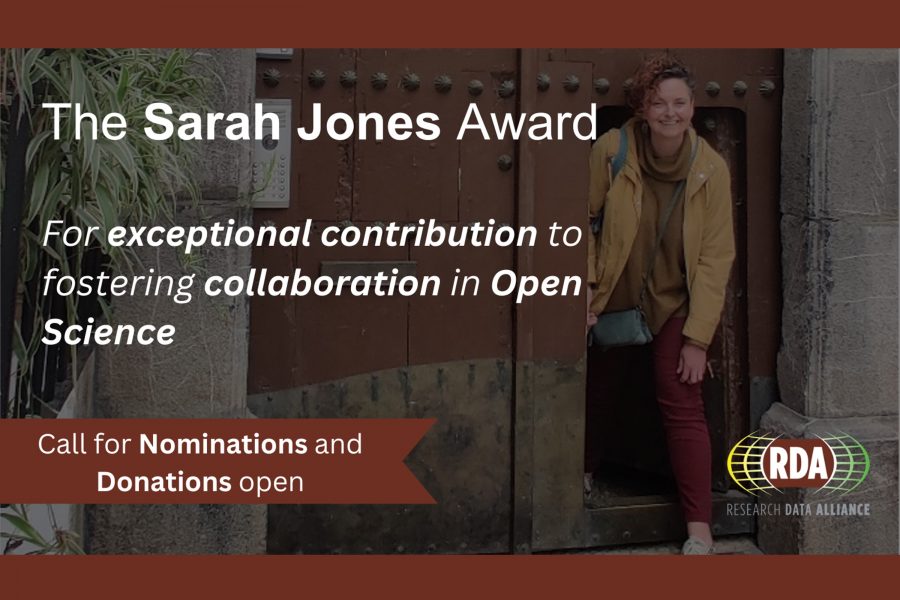In the service of broadcasting the voice of the community, the EOSC Focus project is conducting interviews with EOSC-A Mandated Organisations. Following is the second interview in the series. Luděk Matyska of the Masaryk University in Brno spoke to EOSC-Focus in his role as a representative of CESNET, the EOSC-A Mandated Organisation in the Czech Republic. The interview was conducted by Miguel Rey (TU Graz) and Isabel Caetano (EOSC-A).
Can you describe the role of CESNET for the EOSC Association?
CESNET started as the national network provider for research and education, and now provides compute and data storage services. We were involved in the setup of EOSC since the beginning through our participation in Elixir together with Masaryk University as part of the national large research e-infrastructure, e-INFRA CZ coordinated by CESNET. The supercomputing centre IT4Innovations, and the CERIT-SC Centre at Masaryk University, also part of e-INFRA CZ, are full members of EOSC-A, with CESNET as EOSC-A Mandated Organisation and the support from the Ministry of Education, Youth and Sports (MEYS). We try to be reasonably active in the EOSC-A, and expect to continue improving in the second half of 2023 thanks to the new project funded by the Ministry.
Are there any other motivations for you to become a member of EOSC-A?
CESNET has participated in several EU projects, and shares with EOSC-A the main goals to provide all European citizens, and in particular researchers, with better access to data and to how data is processed and analysed. It was only natural for us to become part of this international initiative.
How is EOSC integrated into CESNET’s overall strategy?
CESNET and Masaryk University, under the umbrella of the MEYS, which is responsible for operating large research infrastructures, began to prepare the environment for the implementation of EOSC in 2020. CESNET was then selected as EOSC-A Mandated Organisation, but the Ministry and e-INFRA CZ are equally important to understand the impact and position of EOSC in the country. In 2020 it was also agreed, based on the “Architecture of the Implementation of EOSC in Czechia” document approved by the Ministry, that the first project to be funded would set up the environment to implement EOSC. This project is coordinated by Masaryk University, with 20 million Euros of budget until 2028.
How do you bring other stakeholders on board?
CESNET will lead a key national project (currently under preparation) to implement key components of the EOSC architecture in the Czech Republic, with around 50 million Euros committed until 2028. It will have a big impact on CESNET as coordinator of e-INFRA CZ, and will determine how it provides its services. The activities funded by the project will be coordinated by CESNET with help of the other members of e-INFRA CZ. In total, 10 to 15 partners are expected to directly participate, including universities and institutes of the Czech Academy of Sciences. Participation of all e-INFRA CZ members will ensure the alignment with the national e-infrastructure and its strategy.
Already in 2020 we created four cross-cutting working groups (WGs) on architecture, services, metadata and interoperability, and on human resources and training and education. There are six further discipline-specific WGs in environment, material science, life science and medicine, or physics, and two special WGs on sensitive data processing (not only medical) and AI as cross-cutting interests for data. Participation in the WGs is open to all researchers. CESNET and Masaryk University have led the work of coordinating the WGs, especially the cross-cutting WGs, as well as the interaction among them.
e-INFRA CZ (especially CESNET and Masaryk University) coordinates the engagement with stakeholders (including researchers, ministries, and funding agencies) on more policy-oriented topics. The Czech EOSC NTE was very representative in this respect and showed that we cover the whole landscape in the country. Thanks to our emphasis in working with data, which all agree that it is the important thing that deserves focus and dedicated funding, we have managed to keep all relevant stakeholders engaged. Helping researchers deal with data through tangible activities contributes to improve their work, which is why they are happy to collaborate. Researchers see that this is good for them and not an additional burden.
Does CESNET have any specific activity to involve the community to e.g. give feedback about the MAR or the SRIA?
This is currently addressed only through the WGs. It would make sense content-wise to deal with these topics, but researchers are usually not too keen to discuss about policies. To keep researchers engaged our experience shows it is better to focus on the content and actual implementation of the policies. National policies are typically developed by MEYS, sometimes with support from the National Library of Technology (NTK). The NTK is directly managed by the Ministry and serves as the de facto coordinator of Open Science in the country, actively promoting Open Access. e-INFRA CZ and NTK cooperate in areas of common interests like EOSC and FAIR data.
The Minister of Research presides the National Council for Research and Development and Innovation, a quite powerful body that decides, among other things, on funding for the Czech Academy of Science and the universities. The current situation with the national budget advises not to start discussions about the national Open Science policy right now, but we are talking about how the process should happen. The EOSC-CZ Secretariat will prepare a white paper on sustainability (including comments on needed policies) of the implementation of EOSC, scheduled for 2025, by when there should be an agreement on the national policy on Open Research Data. There is already a national policy on Open Data in place for governmental data (including from the municipalities) aimed at opening data to the community and the society at large, but it does not cover scientific data. We plan to align Open Data activities with research-oriented Open Science topics, because there is a clear overlap.
What is your view on the implementation of EOSC in the Czech Republic?
The major focus in the Czech Republic is on the content i.e. the data. With the help of the Ministry, we followed a bottom-up approach involving all people interested country-wide. After raising awareness, discussions took place with those who showed interest. It was very important that the Ministry showed full commitment, and that the Government agreed to allocate substantial funding (around 120 million Euros) for the implementation of EOSC. We have chosen to concentrate the funding on a small number of large projects to push forward the implementation based on the agreed architecture. This kind of “action plan” compensates the absence of a national Open Science policy.
The good alignment between the Ministry and the research community is definitely one of the strengths of our approach, together with the good cooperation among the Ministry and e-INFRA CZ. There are other important partners, like the Charles University, several institutes of the Czech Academy of Sciences, and the University of Olomouc, also very active in the WGs.
While initially all the preparation has been done without explicit external financial support, nowadays, the EOSC-CZ Secretariat starts to provide coordination support to the working groups and other activities needed for proper preparation of the next phases of EOSC implementation in Czechia. The Secretariat also processes the information from the engagement with stakeholders, and shares it with the Czech representatives in the EOSC Steering Board, CESNET, or MEYS.
Can you name any person who has been particularly important for the development of EOSC or Open Science in the Czech Republic? Besides yourself, obviously!
Lukas Levak from the Ministry, head of the unit responsible for research infrastructures and EOSC in the country, has been there all the time and deserves all recognition. Jan Hrusak, former ESFRI chair and special envoy of the Ministry towards ESFRI, was also instrumental, because of his insight into the initial dialogue and preparation. Pavel Dolecek, who served as the MEYS deputy-minister for research and universities and is now vice-rector of Charles University, was extremely positive and supportive during the preparation of the EOSC implementation, and continues his support from his current position.
What is your vision and expectations for the time after the current Horizon Europe programme in 2027?
I do not have a clear vision for EOSC after 2027, but my hope is that by then most of the current plans will have become the standard research practices, funded through standard research calls. This does not mean that there will be no new challenges for EOSC: we will still need to push forward, because this is a process, i.e. not just a goal that will eventually be reached. To prepare the country to implement EOSC under the current situation we will focus on all aspects related to data, up to and including data analysis: creation, storage, processing, and sharing.
One extremely challenging thing of Open Science is research evaluation and assessment. Without changes to how researchers and institutions are assessed and evaluated, Open Science will not succeed. FAIR data management has extra costs associated, and if researchers see no incentives, or perceive that in the evaluation of research no one cares about their datasets or the adoption of Open Science practices, and that all that matters is publishing in high impact non-open journals, they will lose interest in EOSC and Open Science.
I do not think Open Science will become the only standard for scientific work in the next five years. There will be a lot of work to do after 2027, although at least by then some of the key points addressed now will have become a part of the best practices. Until then we will understand better what parts of EOSC need long-term commitment, and what is accepted by the research community.
We have already learned that long-term predictability is important, which brings us back to the procurement for EOSC Core: it would be good for researchers to see that the EC relies on solutions created by organisations in the EOSC ecosystem, many funded by the EC itself, rather than delegate the responsibility of running the services to commercial companies which were never directly involved. Researchers will feel they do not need to care, so they will carry on with their business as usual and forget about EOSC.
The EC has recently introduced the concept of “nodes”, with a central EOSC EU Node federated with national nodes. Do you have an opinion on this?
I am not completely sure whether the current discussion about the EOSC EU Node and the National Nodes is actually the best option, because what we are trying at the national level is to put institutions like CESNET and Masaryk University in a supervising, coordinating role, but emphasising that we can never implement EOSC alone, that we will always need the involvement of others. This view of the shared responsibility is actually at the bottom of the division of project leadership between Masaryk University and CESNET: it is a collective effort, so institutions need to engage and not sit back and just wait for the result.
Formal structures can cause that researchers become disengaged. We really are pushing to involve researchers directly, to make sure that they understand that EOSC is something which will not happen without their involvement and commitment. We should avoid that EOSC becomes just a marketplace set up by someone to keep researchers engaged.
What are, in your view, the main challenges faced by EOSC?
The major challenge now is to keep things together and avoid diverging. The decision by the European Commission about the EOSC procurement will be key in this respect. It will make a huge difference who gets the contract—will it be organisations we already know, or new service providers? It will be easier for us if it is people or organisations we have previously worked with, especially at the technical level. To bring others with different attitudes towards EOSC might change the situation dramatically. If the contract goes to someone with a different approach to current developments in the EU Member States, in EOSC Future, or the cluster projects, it may weaken our position, because it will be interpreted as if the current players are not trustworthy anymore, and will reduce the interest from public researchers in EOSC. One of the major ideas we are trying to convey in the Czech Republic is that EOSC is not something coming from outside, but something that you do, and relying heavily on commercial service providers does not match that vision. It can also lead to a certain unpredictability of the services themselves, and of their costs, because companies can change their plans very quickly based on commercial grounds, and this makes it difficult to do good financial planning.
The other challenge is how to keep stakeholders engaged at national level. In the Czech Republic we will follow the policy development at European level, but our focus will remain on implementation.
Luděk Matyska (M) is full professor at Masaryk University and a Senior Researcher at CESNET. Currently he serves as director of Centre CERIT-SC, and between 2013 and 2022 he was Director of the Institute of Computer Science at Masaryk University where CERIT-SC belongs. He is also member of e-INFRA CZ Board of Directors, the national large research e-infrastructure. Since 2021 he is also Chair of the Board of Elixir CZ, and is the Czech scientific representative in the Elixir Board. After taking part in the EOSC Governance Board, Prof. Matyska is now the representative of CESNET, the Czech EOSC-A Mandated Organisation. His expertise contributes to the strategic planning and implementation of EOSC in Czechia. Prof. Matyska has actively participated in numerous national and international projects, usually as head of the national teams. Recent projects where he has been involved include EOSC-Future, EOSC-Life, and GDI. His primary research interests revolve around security in large-scale distributed systems, e-infrastructure architecture (network, computing, and data), as well as cloud and grid systems. He has authored or co-authored over 100 papers and conference contributions.
